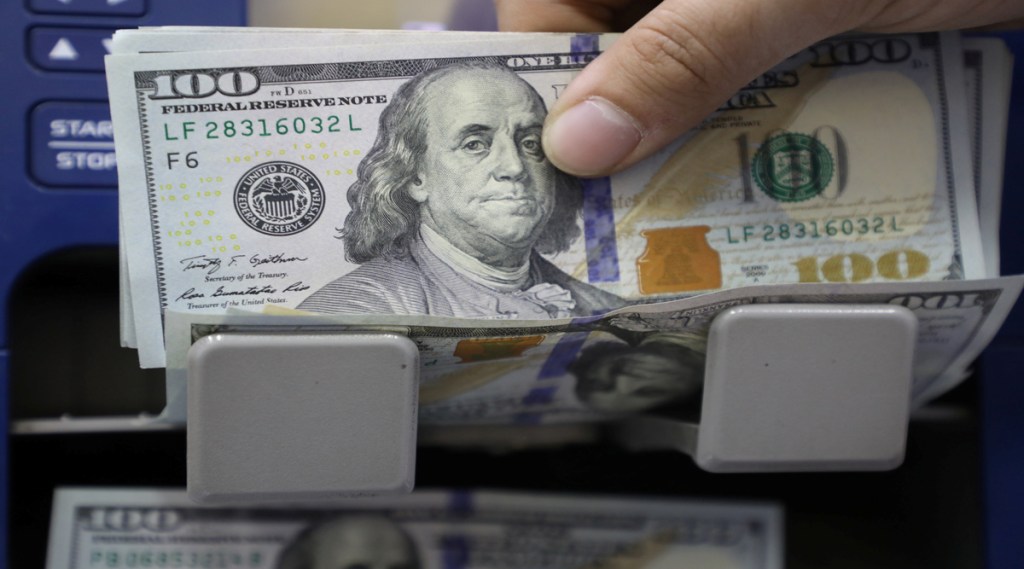Bonds extended a selloff Friday and stocks were under pressure after a surprise jump in U.S. inflation that stirred hawkish comments from a Federal Reserve official.
Sovereign notes dropped in New Zealand and Australia, where the three-year yield hit the highest since 2019. The U.S. two-year Treasury yield Thursday posted its biggest one-day surge since 2009. Treasury futures edged up, with no cash trading in Japan due to a holiday.
U.S. and European equity futures retreated along with Asian stocks. The tech-heavy Nasdaq 100 led declines overnight as U.S. shares snapped a two-day winning run.
The mix of sharp losses in Treasuries and a flattening yield curve suggests investors expect slowing growth alongside aggressive Fed steps to curb price pressures. The dollar climbed.
U.S. inflation hit 7.5%, with goods prices soaring and costs for services also starting to pick up. St. Louis Fed Chair James Bullard said the central bank should hike rates by 100 basis points over the next three meetings. He raised the possibility of considering a move in between scheduled policy reviews.
The latest turbulence in markets again shows how investors are struggling to adjust to the withdrawal of pandemic-era stimulus as officials fight inflation. Overnight index swaps have started pricing an approximately 80% chance of a 50-basis-point liftoff at the Fed’s March meeting, with an additional 25 basis points priced for May and June.
“We don’t think the market has priced the full extent of what we feel the Fed has to do going forward,” Elena Hernandez, principal at investment manager GenTrust LLC, said on Bloomberg Television. “Bullard’s comments today were a big shock and surprise, especially talking about a potential inter-meeting movement. We expect rates to continue to sell off.”
Meanwhile, European Central Bank President Christine Lagarde warned a rush to tighten monetary policy could harm the region’s economic rebound. Australia’s central bank chief said it will be patient on policy until inflation is sustainably within its target range.
Elsewhere, traders are also assessing the latest data from China. Credit growth accelerated in January — a traditionally strong month for lending — with banks extending a record amount of loans after the central bank eased monetary policy to counter an economic slowdown.
In Japan, the central bank finally acted to keep a lid on bond yields, offering to buy an unlimited amount of bonds Monday at a fixed rate.
Meanwhile, oil headed for the first weekly loss since mid-December as a flurry of diplomacy increased the chance of an Iranian nuclear deal being revived, paving the way for a resumption in official flows from the nation.
Here are the main market moves:
Stocks
- S&P 500 futures fell 0.5% as of 11:20 a.m. in Tokyo. The S&P 500 fell 1.8%
- Nasdaq 100 futures dropped 0.4%. The Nasdaq 100 fell 2.3%
- Australia’s S&P/ASX 200 index lost 0.8%
- South Korea’s Kospi index fell 0.6%
- Hong Kong’s Hang Seng index declined 0.4%
- China’s Shanghai Composite index fell 0.2%
Currencies
- The Bloomberg Dollar Spot Index rose 0.1%
- The euro was at $1.1404, down 0.2%
- The Japanese yen was at 115.98 per dollar
- The offshore yuan was at 6.3647 per dollar
Bonds
- The yield on 10-year Treasuries advanced nine basis points to 2.03%
- Australia’s 10-year bond yield increased six basis points to 2.17%
Commodities
- West Texas Intermediate crude fell 0.3% to $89.64 a barrel
- Gold was at $1,825.51 an ounce


